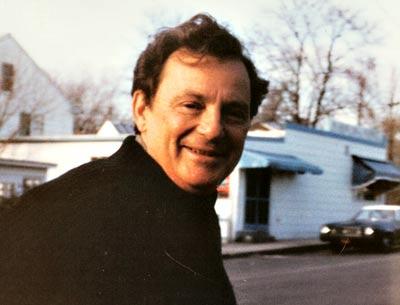Arthur Prager, 91

Arthur Prager of Sag Harbor and New York City died on Friday morning at home on Washington Square in Manhattan. He would have been 92 in August.
Well known in literary circles here and in New York, Mr. Prager was a raconteur of first rank and had a wide circle of friends and acquaintances in the fields of politics and publishing. His stories ranged from his bombing missions during World War II, when he served as a navigator on B-17s flying over Germany, to tales of the many literary figures he had known. He was a regular at the American Hotel’s Friday night salon of writers and journalists in the 1980s and at the fabled Lion’s Head in Greenwich Village, where he made his home since the 1960s. He was also a member of the Century Club.
He was the author of “The Mahogany Tree: An Informal History of Punch” in 1979, about the British satirical magazine, and “Rascals at Large, or, The Clue in the Old Nostalgia” in 1971, an affectionate look at children’s books of the 1930s. Both books captured Mr. Prager’s sense of whimsy and wit. For many years he reviewed books for The Saturday Review and, later, The East Hampton Star.
Less well known is that he was the ghostwriter of one of the “Coffee, Tea or Me” sequels, short, breezy novels about the escapades of two stewardesses in the Swinging Sixties and Seventies. As Mr. Prager might have been called a ladies’ man of the old school, he was suited to this book as well. He was quirky, intellectual, and a gentleman whose joviality and impeccable manners made him a frequent guest at dinner parties in the Hamptons.
Mr. Prager’s fondness for children’s books can be seen in one anecdote he told about himself. During World War II when he was in the Army Air Forces, he was the lead navigator on 22 bombing missions over Germany — always a dangerous enterprise. Navigators were given alternate missions if the weather made visibility difficult. One day it was raining over the intended target, and he was given a choice of other nearby sites. One was Nuremberg. Mr. Prager said he had a fond memory of the 1930s children’s classic “The Nutcracker of Nuremberg” by Alexandre Dumas and knew that the town dated to medieval times. He chose another target.
Long before men looked upon cooking as a manly art, Mr. Prager had mastered the pot-au-feu, and froze the leftovers and the broth and added it to the pot the next time he served it to one of his lady friends. In 1981, he published a piece about it in The New York Times that began, “My pot-au-feu reaches its majority this week. Older than Brooke Shields, better-seasoned than Mariel Hemingway, it has been child, wife and mistress to me for 21 years. I nurtured it through its turbulent teens, cared for it, loved it. Now at its coming-of-age I bestow 21 kisses and one to grow on. We plan to spend our Golden Years together.” They did.
Mr. Prager bought a house on Rogers Street in Sag Harbor in the 1960s, and was a good neighbor and citizen of the village. He served for two years on the board of historic preservation and architectural review when it was formed, and wrote its ethics rules.
Mr. Prager was awarded the Air Medal with two oak leaf clusters for his service in World War II. After the war, he stayed in the Army Air Forces through its conversion to the U.S. Air Force, serving in various capacities and finally as a military attaché with the rank of captain in Taiwan and Hong Kong, for which he received an award from the Queen of England. The citation read it was for “services that cannot be named.” Mr. Prager never revealed them, even to his closest friends. Although he tended to say that his duties in China were perfunctory, the Chinese issued a wanted poster for him, one of which he displayed in his apartment in Greenwich Village.
After retiring from the Air Force, Mr. Prager taught air sciences at New York University, joined the Office of the Mayor in New York City, specializing in emergency planning, from 1961 through 1982, and worked for Herman Badillo’s mayoralty campaign. His time in England during the war turned him into an Anglophile, and he retained many connections in England.
Upon retirement from the City of New York, he became the president of the Royal Oak Foundation, a nonprofit that raises money for English historic houses, and after that was president of the American arm of the Irish Georgian Society, a nonprofit that does the same for Irish historic houses.
Mr. Prager was born in Queens on Aug. 15, 1922, to Elsie and Joe Prager. His marriage to the late Peggy Romano Fybish ended in divorce. He was the father of Emily Prager, a former New York Times columnist and novelist who now lives and works in Islamabad, Pakistan. He is also survived by one grandchild and a stepdaughter, Nora Elcar-Verdon.
There will be a memorial for him on Sunday from 3 to 5 p.m. at the American Hotel in Sag Harbor.
